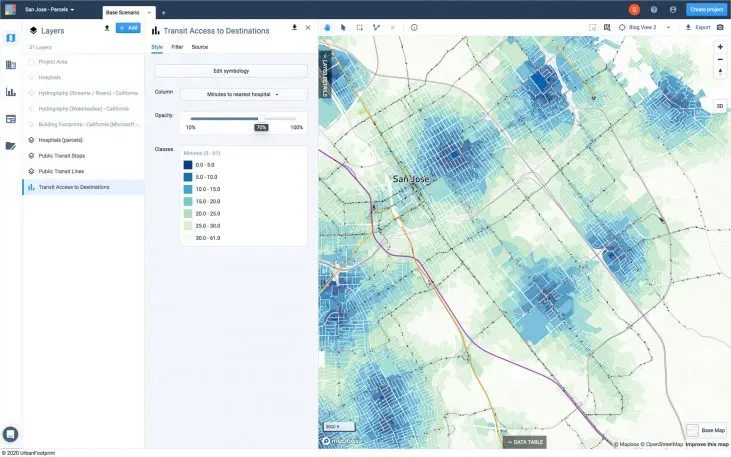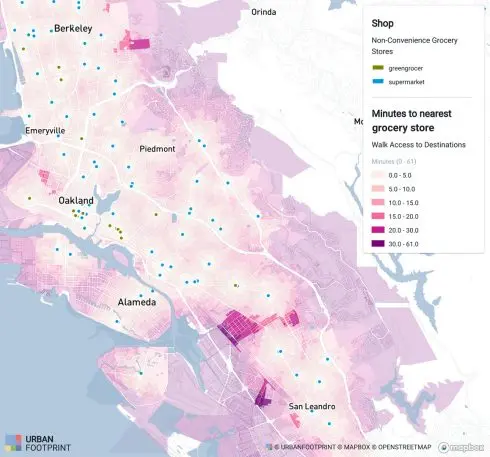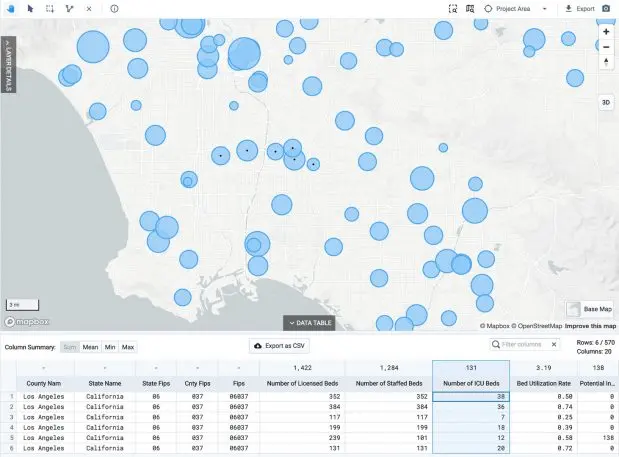The coronavirus crisis isn’t hitting every American equally—both in terms of factors like who is able and allowed work from home and in terms of urban design, like whether someone under lockdown can easily reach a grocery store or whether the nearest hospital is well-prepared for a surge in patients. As governments and nonprofits figure out where to send help, Urban Footprint, an urban planning tool, is beginning to map out the neighborhoods that are most vulnerable.
[Image: Urban Footprint]
“Some of the challenges right now—which seem to be changing and unfolding by the day—we believe are really going to be around how to support specific populations,” says Joe DiStefano, CEO and cofounder of Urban Footprint. “In this case, it could be folks that are particularly vulnerable to the disease, like those who are older. It could be folks that are particularly vulnerable to the shutdown of certain facilities, like people who are transit-dependent . . . our system can be used to very quickly understand where that vulnerability exists anywhere in the country.”

The planning tool, which first launched in 2018, was designed to make it easier for planners and others to make sense of huge data sets to understand things like how a particular plan might impact traffic, energy use, or multiple other factors that might take months and special expertise to analyze with traditional processes. For COVID-19, it pulls in the latest data from the CDC and other key sources, and then combines that with statistics about poverty, for example, or the number of people who don’t live within walking distance of a supermarket.

“There are subsets of our population that don’t have automobiles and don’t have other ways to access essential services,” says DiStefano. “So when the California governor gets up and says, ‘Hey, we’re going to use the National Guard to deploy food,’ where do you deploy that? Where do you have weakness in your system? I think those are the things that our system can readily do today.” Someone using the tool can see what would happen if a local bus network stops running as frequently, or which neighborhoods have a high elderly population and few hospital beds.

Recognize your brand’s excellence by applying to this year’s Brands That Matter Awards before the early-rate deadline, May 3.